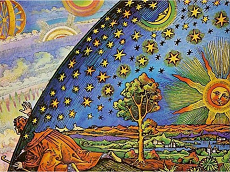Quantum mechanics is the study of the tiniest components of matter and energy. The components of matter are the tiny bits inside the atom: protons, neutrons, electrons, etc. The components of energy are, in the case of light, photons. Other types of energy have other components. These components follow laws different to those of everyday …
What is the difference between theoretical quantum physics and experimental quantum physics?
Short answer: Theoretical physics is one of two branches of physics: theoretical and experimental. Like other types of physics, quantum physics has both a theoretical physics branch and an experimental physics branch. Explanation: Experimental physicists do experiments to find out how accurately physics theories describe the real world. For example, they shoot atoms and bits …
What does “measurement” mean in quantum mechanics?
In quantum mechanics, when physicists measure a property of a quantum particle, like a photon, they are really saying that they detect one of its properties. The key to understanding why “measurement” is of such consequence in the quantum world is understanding that detection creates a fundamental change in a particle’s condition. For example, let’s …
How can we tell when descriptions of quantum mechanics are woo-woo and not scientific?
[This article is under construction.] Currently, there are over 20 theoretical interpretations of quantum physics. They mostly SOUND like woo. For example, the Many Worlds Interpretation proposes that innumerable universes are created by quantum events. The de Broglie-Bohmian Interpretation proposes that every event is connected with every other event in the universe, thus explaining the …
How Can an Electron Be in More Than One Place at the Same Time?
A single electron CAN have a pretty specific location at a special moment in time, the moment that it interacts with another particle and creates a physical change in our universe (more later). However, an electron has no specific location when it acts as a wave in a quantum field. A wave can also be …
What is the difference between an electron and a photon?
I had the same question. When I researched this at @Electricity is energy [the real title of the article is “Electricity Is NOT Energy”], I found out that electrons are tiny particles of matter. They are the bits of matter within an atom that vibrate around the nucleus of an atom. Electrons can also fly about …
How can I learn Quantum Mechanics?
I will start by saying that I understand the math of Quantum Mechanics (QM) only in a highly conceptual way. Understanding the math to the point that one can calculate quantum mechanics problems, requires familiarity with matrix math and partial differential equations, and more. This requires several years of calculus. However, I do have a …
